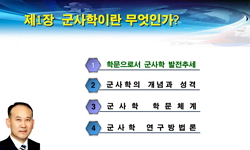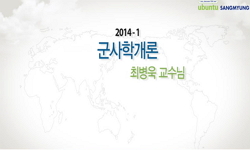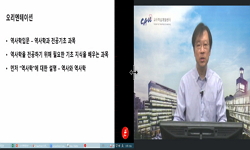In the period of the Choseon Dynasty provincial supervisors were given a fixed term office prescribed by a code of laws. When we look into the Seongsang An which was kept on file at each of local offices, we cannot help being astonished to find out th...
http://chineseinput.net/에서 pinyin(병음)방식으로 중국어를 변환할 수 있습니다.
변환된 중국어를 복사하여 사용하시면 됩니다.
- 中文 을 입력하시려면 zhongwen을 입력하시고 space를누르시면됩니다.
- 北京 을 입력하시려면 beijing을 입력하시고 space를 누르시면 됩니다.
조선시대 地方官 交遞에 관한 연구 = (A) Study of the Replacement of Provincial Supervisors in the Period of the Choseon Dynasty
한글로보기https://www.riss.kr/link?id=T3121341
- 저자
-
발행사항
부산 : 東亞大學校 大學院, 1987
- 학위논문사항
-
발행연도
1987
-
작성언어
한국어
- 주제어
-
KDC
911 판사항(4)
-
발행국(도시)
부산
-
형태사항
137p. : 삽도 ; 26cm.
-
일반주기명
참고문헌: p. 131-133
-
소장기관
-
0
상세조회 -
0
다운로드
부가정보
다국어 초록 (Multilingual Abstract)
In the period of the Choseon Dynasty provincial supervisors were given a fixed term office prescribed by a code of laws. When we look into the Seongsang An which was kept on file at each of local offices, we cannot help being astonished to find out that Byeongsa and Susa, and generals in local areas under their command as well as Suryeong and Gwanchalsa were replaced very often. Such a phenomenon resulted from the fact that the term of provincial supervisors prescribed by a code of laws was not observed properly. Frequent replacement of provincial supervisors at the end demolished an offical discipline and imposed more burden on people and brought about various evil practices so that it gave a great influence on local administration and the living of the people in the period of the Choseon Dynasty. Then what was the actual situation of the replacement of provincial supervisors and what was reasons for such a frequent replacement? This will be one of the important tasks to be illuminated for us to understand correctly the characteristic of provincial supervisors and the actual circumstances of local administration. Thus I examined and analysed various Seonsang An as part of the groundwork for the illucidation of the problems posed above in this dissertation and tried to bring to light the actual status of the replacement of provincial supervisors such as Gyeongsang Do Gwanchalsa, Gyeongsang Dosa, Gyeongsang Jwasusa, Dadaepo Cheomsa and Dongrae Busa and its point at issue. The conclusion resulted from this study is as follows.
First, Gyeongsang Do Gwanchalsa and Dosa were given their tenure of office(one or two years in case of Gwanchalsa and one year in case of Dosa). However, this tenure of office was not observed satisfactorily especially since the close of 16th century, Most of Gwanchalsa and Dosa were replaced prior to the expiration of their tenure. There were many cases in which they were short of the tenure to be legally admitted or by far over than their tenure of office. Such fact shows that their legal tenure was not fixed absolutely. So it was nothing but a certain principle and standard. There were few who were replaced against their will by means of disciplinary punishment except for a small minority among Gwanchalsa and Dosa until the mid 16th century, However, after the closing period of 16th century, politics was in disorder, and as official discipline slackened up, one fifth of Gwanchalsa and almost half of Dosa were dismissed from their duties unwillingly. The replacement of Gwanchalsa (provincial governor) arising from their resignation was unusual even until the first half of 16th century because the Choseon government gave a thoughtful regard for their nomination and treatment in view, of the great importance of a local administration. But since the latter half of the 16th century there arose a tendency to make little of local office, so that a number of provincial supervisors who grew tired of their position abdicated it. Accordingly, the Choseon government prolonged the tenure of Gwanchalsa into two years and permitted them to start for their new post with their family in order to lower the rate of their resignation. However, when nepotics politics began in the early 19th century the rate was lowerd again with the end of nepotic politics. Dosa held a stable position, and their social status was firmly ensured. But in the latter half of 16th century when the circumstances changed completely, their position became insecure and their social status was not secured at all, so that almost half of Dosa were dismissed on account of trifle errors. Even though they excused themselves from the deprivation of office they were not given a new office after leaving their post. Thus it was impossible for them to continue their lives in officialdom. Besides, they merely became nominal officials who were out of work because Gwanchalsa deprived them of their own works. Consequently, public officials in those days disliked the position of Dosa, and in the end many assistant supervisors(Dosa) avoided taking up the duties of a new office.
Second, Susa held office for two years and Dadaepo Cheomsa held office for two years and six months. However, this tenure of office was not observed satisfactorily. Most of Susa and Cheomsa were replaced prior to the expiration of their tenure. Such a fact shows that their legal tenure of office was not fixed absolutely. So it was nothing but a certain principle and standard. Many of Susa and Cheomsa were replaced against their will by means of disciplinary punishment except for a small minority among them. Accordingly, the rate of their disciplinary punishment was very high. In case of Susa its rate amounted to 26.6%, and in case of Cheomsa, it came up to 30.9% which was a little higher than that of Susa. Such a high rate of disciplinaly punishment was attributed to their wrong doings which arose from unsatisfactory material security for their living though the government organized such official positions as Susa and Cheomsa. On the other hand the reason why the rate of disciplinary punishment for Cheomsa was higher than that of Susa was that Cheomsa became the object of his efficiency rating system conducted by Susa. The position of both Susa and Cheomsa was often vacant since a predecessor in office and a successor to that post never coincided with each other at the time of their replacement. So the rate of his vacancy was high.
Third, Dongrae Busa was given two years and six months of legal term of office. However, this term of office was not observed satisfactorily but nearly ignored because his post was replaced prior to the expiration of his tenure. So those who were replaced by the expiration of their term were rare. Though a few of them were replaced by the expiration of their term, they were short of the tenure to be legally admitted or by far over than their tenure of office except for a small minority. Consequently, most of Dongrae Busa were replaced due to disciplinary punishment, transference, and dismissal from their office without cause. In addition, the government asked that provincial supervisors(Suryeong) should be responsible for trifle accidents in local area or their minor errors so that many of Suryeong avoided holding their post. There were temporal discrepancies between their leaving and holding their posts, which caused the absence of administration because vacant seats were not filled and at last gave a lot of public harm to people.
목차 (Table of Contents)
- 目次
- Ⅰ. 序論 = 5
- 1. 問題의 提起 = 5
- 2. 資料에 對하여 = 7
- Ⅱ. 觀察使(慶尙道觀察使)와 都事(慶尙都事)의 交遞 = 12
- 目次
- Ⅰ. 序論 = 5
- 1. 問題의 提起 = 5
- 2. 資料에 對하여 = 7
- Ⅱ. 觀察使(慶尙道觀察使)와 都事(慶尙都事)의 交遞 = 12
- 1. 任期滿了로 인한 交遞 = 13
- 가. 觀察使의 경우 = 13
- 나. 都事의 경우 = 24
- 2. 懲戒로 인한 交遞 = 29
- 가. 觀察使의 경우 = 29
- 나. 都事의 경우 = 34
- 3. 觀察使의 辭職과 都事의 赴任忌避 = 37
- 가. 觀察使의 辭職 = 37
- 나. 都事의 赴任忌避 = 40
- Ⅲ. 水使(慶尙左水使)와 僉使(多大浦僉使)의 交遞 = 44
- 1. 任期滿了로 인한 交遞 = 45
- 가. 水使의 경우 = 45
- 나. 僉使의 경우 = 53
- 2. 懲戒로 인한 交遞 = 58
- 가. 水使의 경우 = 58
- 나. 僉使의 경우 = 63
- 3. 交遞時의 空席期間과 在任期間 = 66
- 가. 水使의 경우 = 66
- 나. 僉使의 경우 = 70
- Ⅳ. 守令(東萊都護府使)의 交遞 = 76
- 1. 任期滿了로 인한 交遞 = 77
- 2. 懲戒로 인한 交遞 = 82
- 3. 辭職ㆍ轉補 및 其他로 인한 交遞 = 86
- 4. 交遞時의 空席期間과 在任期間 = 91
- 5. 守令職 數遞의 影響 = 95
- Ⅴ. 結論 = 99
- <<副論文>> 朝鮮 中宗朝 臺諫의 交遞實態 = 103
- 1. 序言 = 103
- 2. 臺諫의 頻數한 交遞 = 104
- 3. 臺諫의 避嫌으로 인한 交遞 = 118
- 4. 臺諫의 論駁으로 인한 交遞 = 123
- 5. 結語 = 129
- 參考文獻 = 131
- SUMMARY = 134











